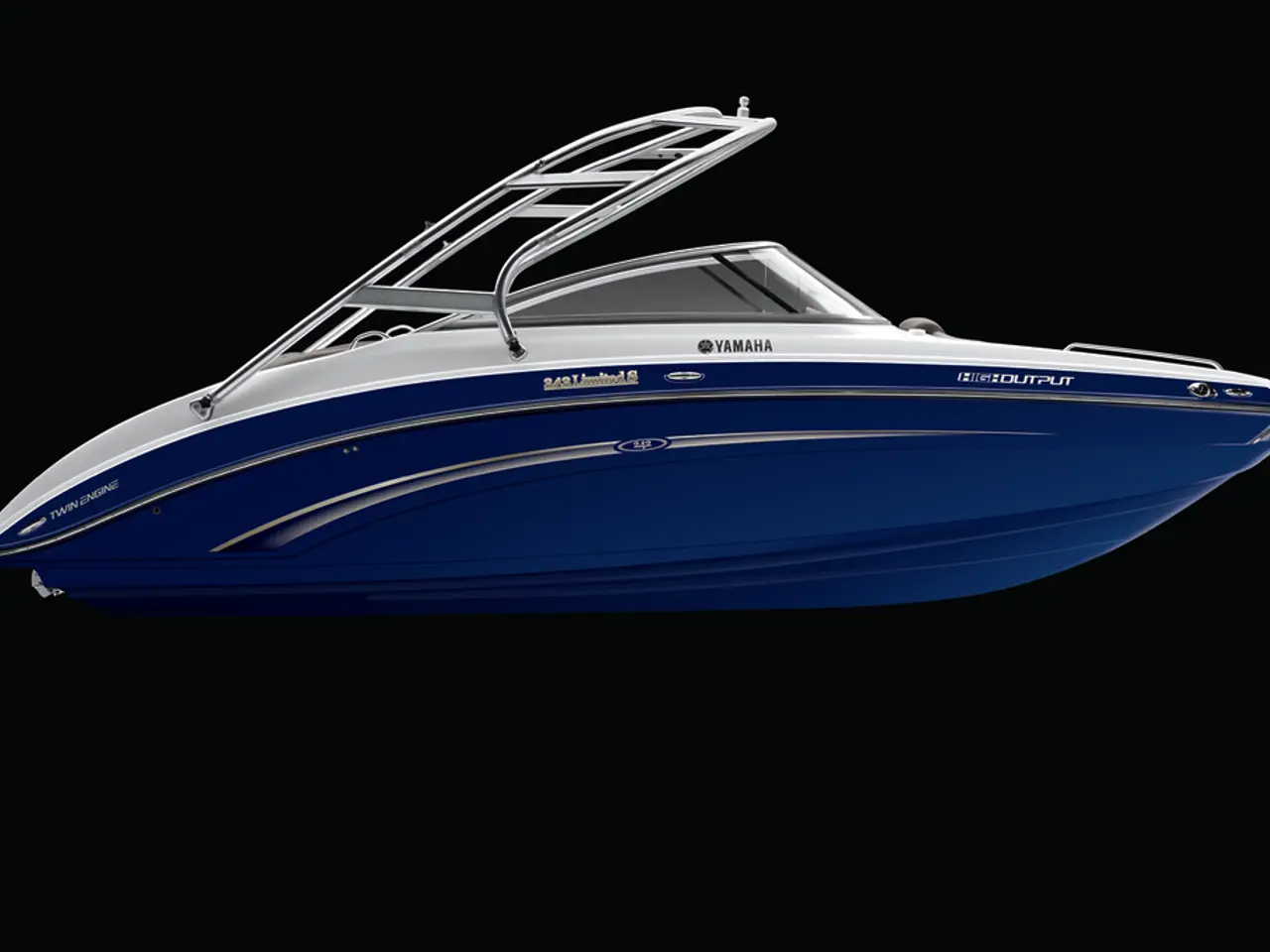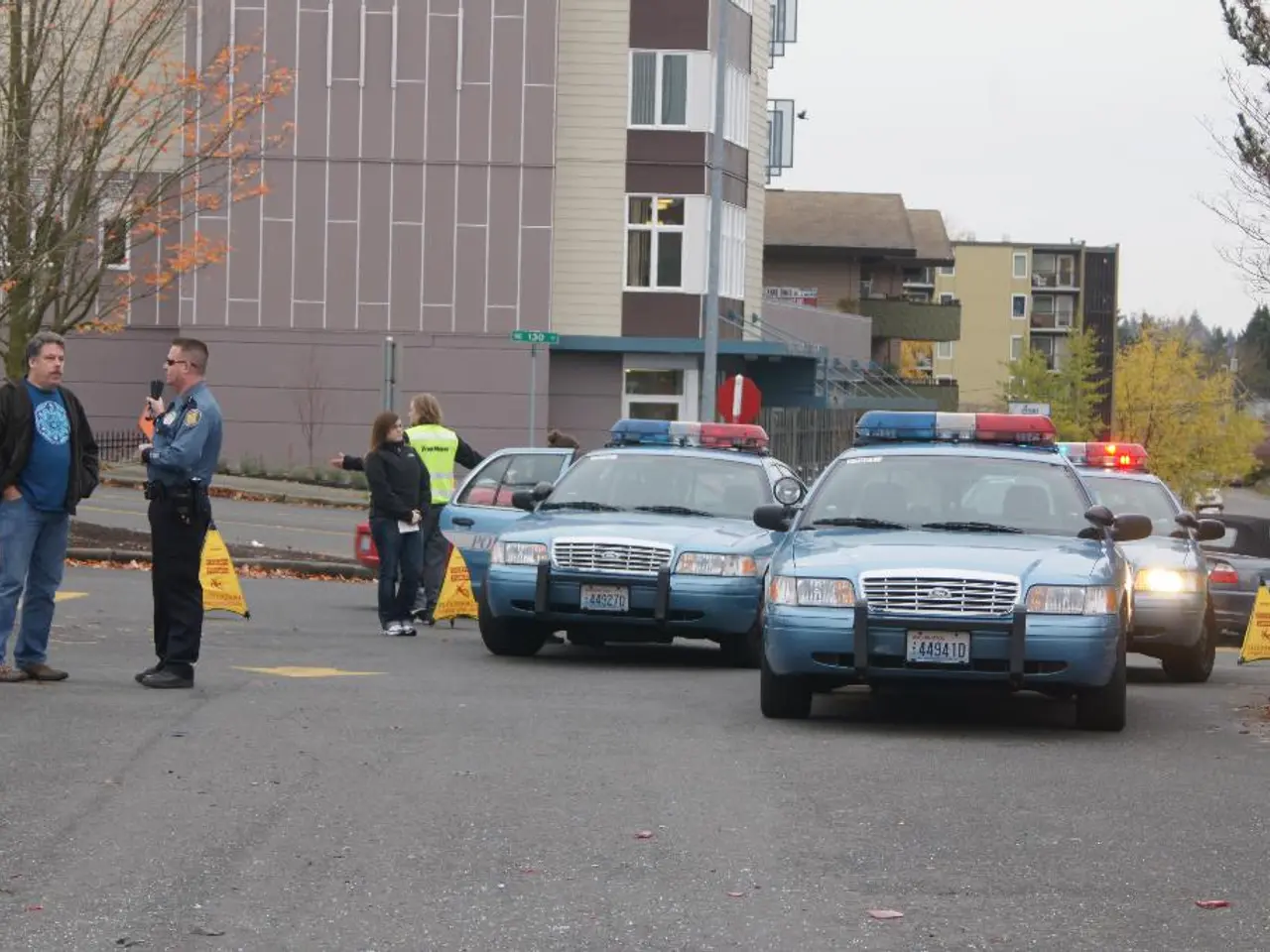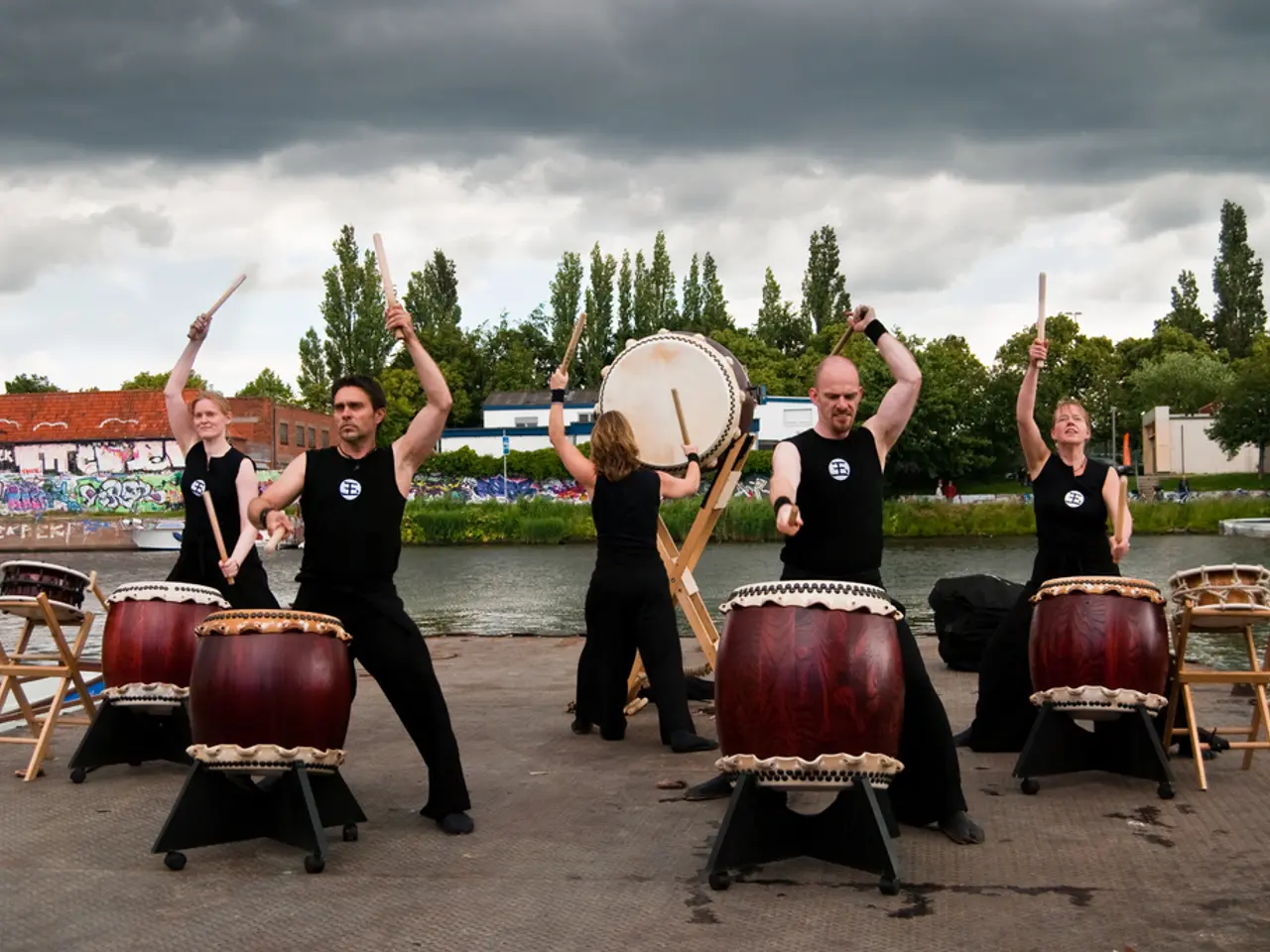French authorities' actions, involving the puncturing of a boat, met with approval from the UK, as a means of hindering migrants trying to cross the English Channel.
In a significant turn of events, the Channel witnessed another tense incident on Friday as French police intervened to prevent a boat carrying dozens of migrants from setting off towards the UK. The incident, broadcast by the BBC, comes amidst a long-standing dispute between the two countries over who should be responsible for handling migrants arriving from Africa and the Middle East.
According to a spokesman from Prime Minister Keir Starmer's office, the incident in the Channel this morning was a "significant moment" in the ongoing crisis. The British government welcomed the footage of French police stopping a small boat carrying migrants from setting off across the Channel.
However, it's important to note that French law enforcement is prevented by law from intervening once a boat is in the water. The migrants on the boat returned to shore after the intervention.
In response to the rising number of Channel crossings, French authorities have been exploring new strategies. One such plan is to allow French police to intercept migrant boats closer to shore, up to 300 meters away, rather than only when lives are at risk. This measure is part of a broader strategy to deter crossings but has faced skepticism from police and activists regarding its effectiveness and safety concerns.
France is also in discussions with the UK about a returns agreement. This agreement would enable the UK to return some migrants who arrived by small boat, in exchange for accepting asylum seekers with family ties in the UK. However, details are still unclear, and other EU countries have expressed opposition to a bilateral deal.
The surge in migrant crossings has reached record levels, with over 14,800 small boat crossings recorded in the first five months of 2025. This surge has increased pressure on both governments to find effective solutions.
Both France and the UK are focusing on deterrence measures, including policing and legal agreements, to reduce the number of crossings. However, these efforts are often met with skepticism by those involved, who question their feasibility and impact.
The situation remains complex, with ongoing negotiations and efforts to implement new policies. The effectiveness of these measures will depend on how they are implemented and received by migrants and the broader public. The UK and France continue to grapple with finding a balance between enforcement and humanitarian considerations.
[1] The incident occurred on Friday. [2] The UK and France have been in dispute for years about who should be responsible for handling migrants arriving from Africa and the Middle East. [3] The boat in question was carrying dozens of migrants. [4] The incident involving the boat and the migrants occurred in the Channel. [5] On Friday, the BBC broadcast footage showing French police puncturing a boat as it was about to set off for the UK. [6] The spokesman noted that recent weeks have seen a toughening of the French police's approach. [7] The spokesman welcomed the action taken by French law enforcement in shallow waters. [8] The incident is a part of the ongoing dispute between the UK and France regarding migrants. [9] A spokesman from Prime Minister Keir Starmer's office stated that the incident in the Channel this morning was a significant moment. [10] The dispute between the UK and France concerns migrants who make their way to the northern coast of France with the intention of reaching Britain by boat. [11] The British government welcomed footage of French police stopping a small boat carrying migrants from setting off across the Channel. [12] French law enforcement is prevented by law from intervening once a boat is in the water. [13] The migrants on the boat returned to shore after French police stopped them. [14] Recent developments in the UK-France migrant crisis have seen significant efforts to address the rising number of Channel crossings. [15] There are plans to allow French police to intercept migrant boats closer to shore, up to 300 meters away, rather than only when lives are at risk. This measure is part of a broader strategy to deter crossings but has faced skepticism from police and activists regarding its effectiveness and safety concerns. [16] France is in discussions with the UK about a returns agreement. This agreement would enable the UK to return some migrants who arrived by small boat, in exchange for accepting asylum seekers with family ties in the UK. However, details are still unclear, and other EU countries have expressed opposition to a bilateral deal. [17] Migrant crossings from France to the UK have reached record levels, with over 14,800 small boat crossings recorded in the first five months of 2025. This surge has increased pressure on both governments to find effective solutions. [18] Both France and the UK are focusing on deterrence measures, including policing and legal agreements, to reduce the number of crossings. However, these efforts are often met with skepticism by those involved, who question their feasibility and impact.
[1] The significant war-and-conflicts-related issue of migrant crossings reached a peak in 2025, as over 14,800 small boat crossings from France to the UK were recorded in the first five months alone. [2] This general-news topic, which has been ongoing for years, has led to a long-standing dispute between the two countries, particularly regarding who should be responsible for handling migrants arriving from Africa and the Middle East.








